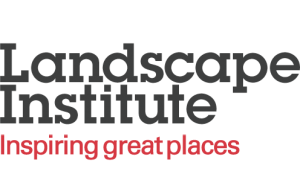Interview: how can greater awareness of policy issues benefit landscape professionals?
- Ian Philips CMLI, MRTPI is a member of Advisory Council and the Policy Committee, and Chair of the Appointments and Selection Committee (IP)
- Annie Coombs is a member of Advisory Council and the Policy Committee, and Fellow of the Landscape Institute (AC)
- Paul Tiplady CMLI, MRTPI of Craggatak Consultants is a member of the Policy Committee and specialises in the management and planning of protected landscapes (PT)
Now that we’re in the first year of a new government, is it more relevant than ever to be aware of how policy is changing?
IP: At present, there is a policy vacuum, particularly with regard to the planning system, as we await publication of the government’s proposals for reform in this area and the results of various challenges to them.
However, we need to be responsive to the proposed decentralisation and localism agenda and the new government’s aspiration to be ‘the greenest government ever’. Landscape architects should be seeking to influence and assist decision-makers at all levels regarding the relevance and value of landscape-related issues, and encouraging high-quality, well-informed and sustainable landscape planning, design and management.
The Institute has nearly 6,000 members, many of whom will be able to help promote these objectives through their employers, colleagues, clients and contact networks.
How has the LI’s approach or involvement in communications and policy changed over the past two years?
AC: The decision taken by trustees more than two years ago to try and influence government during policy preparation has led to a much more focused approach to work by the Policy Committee, with preparation of position statements for lobbying and responses. The LI’s statement on green infrastructure has been very successful to date, and has been cited many times by central and local government bodies.
The past few years have also seen a much improved approach to LI communications, with suites of coordinated publications and better website. The enhanced effectiveness in communications and policy are, in my view, a result of high-calibre LI staff who work hard to understand the profession and build relationships with members, and who, through their enthusiasm, motivate volunteers to do their essential bit.
How can committee involvement or participation in LI responses to policy proposals benefit LI members?
IP: The LI membership is its strength. Members provide a wealth of experience, skills and views, while sharing a common interest in engaging productively with good landscape planning, design and management.
As a widely respected national professional body, the LI provides a voice for its members’ interests, which carries significant weight and influence. However, it tends to rely heavily on a small, dedicated staff and relatively few activists and committee members.
Its ability to influence policy direction is greatly enhanced if more of its members are prepared to contribute positively to its policy statements and committee activities. Raising the profile of landscape issues beyond the profession will, both directly and indirectly, benefit all landscape architects and our aspirations for the future of the environment.
AC: I find my involvement in the LI Policy Committee and its responses enormously helpful for keeping abreast of relevant government agendas that matter to the landscape profession, which, in turn, I can use in my work as a sole practitioner.
My connections with people on the committee are helpful in many ways and have on occasion led to commercial opportunities for myself and other practitioners. It is not the reason that I participate, but it is a welcome bonus.
I firmly believe the work of the committees, particularly policy, is the most outward looking of the LI. So I see any ambassadorial role I can play being of use to the wider membership.
In your opinion, what are the biggest ways in which policy can affect your everyday work and practice?
PT: There is a host of European, national and local policies, and regulations that are regularly reviewed. The scope of regulation is very wide and my clients need to be given the best advice, based on the most up-to-date understanding of the operating environment. They also need to know what new or revised regulations are potentially in the pipeline.
How can greater awareness of policy issues benefit you as an LA?
PT: I find it helpful to be in regular contact with Defra officials and the various government countryside agency staff, many of whom I meet because of my work for the LI’s Committees.
I often receive draft copies, as well as consultation copies, of papers and policies, which I can read with an understanding of the authors’ intent. I have the opportunity to input into the Institute’s response – both formally and informally – and by this action develop my own understanding of the issues likely to effect the environment in which I work. It is a very effective form of Continuous Professional Development.




